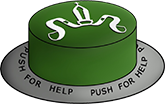Physical Education
KS3 Physical Education
Intent
Pupils will build on and embed the physical development and skills learned in key stages 1 and 2, become more competent, confident and expert in their techniques, and apply them across different sports and physical activities. They will understand what makes a performance effective and how to apply these principles to their own and others’ work. They will develop the confidence and interest to get involved in exercise, sports and activities out of school and in later life and understand and apply the long-term health benefits of physical activity.
Pupils will be taught to:
- use a range of tactics and strategies to overcome opponents in direct competition through team and individual games [for example, badminton, basketball, cricket, football, hockey, netball, softball, rugby and tennis]
- develop their technique and improve their performance in other competitive sports [for example, athletics and gymnastics]
- analyse their performances compared to previous ones and demonstrate improvement to achieve their personal best
- take part in competitive sports and activities outside school through community links or sports clubs.
Curriculum sequence
|
|
Term 1 |
Term 2 |
Term 3 |
Term 4 |
Term 5 |
Term 6 |
|
Year 7 |
Health and Fitness (including Core Skills Testing)
Rugby
Cross-Country
Table Tennis
|
Badminton
Football
Basketball
Table Tennis
|
Softball
Athletics
Tennis
|
|||
|
Year 8 |
Rugby
Cross-Country
Table Tennis
|
Badminton
Football
Basketball
Table Tennis
|
Softball
Athletics
Tennis
|
|||
National curriculum links
Our curriculum has been mapped against the framework of the national curriculum and appropriate aspects are covered over the two year course and our curriculum matches its breadth and ambition by enabling the boys to develop skills and techniques in a broad range of activities. Some of those activities that are not covered in the curriculum are offered in other faculties of the school, such as dance.
Meeting the needs of SEND and Pupil Premium students
In line with whole-school priorities, PE teachers place SEND and Pupil Premium students at the centre of our lesson planning. Key to ensuring this is high quality teaching: we direct questions to disadvantaged students, check their understanding regularly and provide frequent feedback using verbal feedback. Students are given opportunities, in lesson time, to act on their feedback.
Ensuring SEND and Pupil Premium students can access our PE curriculum is extremely important to us and these inclusive strategies, which benefit all students, are particularly supportive for vulnerable learners:
- Differentiated tasks
- Use of appropriate equipment dependent on ability.
Retention
Our curriculum is taught to be remembered. All students complete progress cards which are used to check understanding at the beginning and end of a particular activity.
Homework
In Key stage 3 no homework tasks are set.
Assessment
Students are assessed at the end of every activity and they complete their progress cards to reflect on their own development.
Contact:
Mr Tamblin
Head of PE
GCSE Physical Education
This exciting course is based on a balanced framework of theory and practical performance. The majority of lessons are classroom based, with only a small proportion of practical lessons.
Course outline
The course is divided into 3 key sections.
Paper 1: The human body and movement in physical activity and sport. (30% of the GCSE)
- Applied anatomy and physiology: The musculoskeletal system, the cardio-respiratory system, anaerobic and aerobic exercise, the short and long term effects of exercise
- Movement Analysis: Lever systems and the mechanical advantage they provide in movement, planes and axes of movement
- Physical Training: The relationship between health and fitness and the role of exercise, the components of fitness, benefits for sport and how fitness is measured, the principles of training and their application to personal exercise programmes, how to optimise training and prevent injury, effective use of warm up and cool down
- Use of Data
Paper 2: Socio-cultural influences and well-being in physical activity and sport (30% of the GCSE)
- Sport Psychology: Classification of skills, the use of goal setting and SMART targets to improve and/or optimise performance, Basic information processing, Guidance and feedback on performance, Mental preparation for performance.
- Socio-cultural influences: Engagement patterns of different social groups in physical activity and sport, Commercialisation of physical activity and sport, Ethical and socio-cultural issues in physical activity and sport
- Health, fitness and well-being: Physical, emotional and social health, fitness and well-being, The consequences of a sedentary lifestyle, Energy use, diet, nutrition and hydration
- Use of Data
Non Exam Assessment: Practical Performance (40% of the GCSE)
- Practical performance in three different physical activities in the role of player/performer. These must come from a list predetermined by AQA (25 marks each)
- Analysis and evaluation of performance to bring about improvement in one activity. Written report (25 marks)
Assessment and Progression
Examination Board:
AQA
Grading system:
1-9 (9 is highest)
Assessment:
2 final examinations
Paper 1 – The human body and movement in physical activity and sport. 1hr 15minutes
Paper 2 – Socio-cultural influences and well-being in physical activity and sport.
1hr 15 minutes
Exam questions are a mix of multiple-choice, short and long answers.
Non Exam Assessment
Practical Performance and Analysis of Performance.
Progression to Post-16:
A-Level PE.
Future career links:
PE Teacher
Sport and Leisure Industry
Coaching and Sports development
Physiotherapy
Contact:
Mr Tamblin – Head of PE
stamblin@st-birinus.oxon.sch.uk




